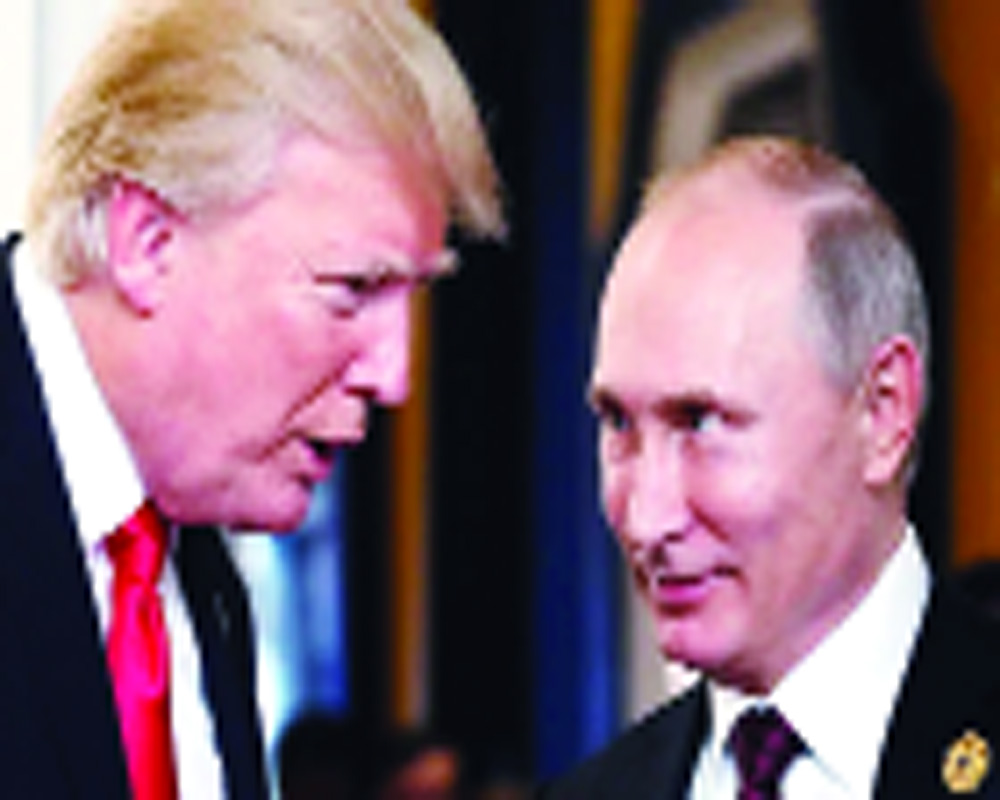Though US President Trump is attempting to resolve the prolonged war in Ukraine, the effectiveness of his methods remains uncertain
As the war in Ukraine enters its third year, US President Donald Trump is trying to broker peace. However, his approach has sparked controversy, as it appears to sideline Ukraine in key negotiations. With Russia still holding a significant portion of Ukrainian territory, the implications of this initiative could reshape the geopolitical landscape of Europe and beyond. The critical questions remain: What would a Trump-led peace deal entail? How would it affect Ukraine’s sovereignty? And what choices do Ukraine and Europe have in response? If Ukraine is sidelined in these negotiations, it could be pressured into accepting a deal that legitimises Russia’s territorial gains, effectively rewarding aggression. For Russia, such an outcome would be a strategic victory, allowing it to retain control over nearly a fifth of Ukraine’s land, including areas it currently does not fully control. A peace deal without Ukraine’s full participation and interests at its core would have profound consequences. The Ukrainian government has consistently maintained that any agreement must include the restoration of its 1991 borders and accountability for war crimes committed during the invasion. However, a Trump-negotiated settlement could pressure Kyiv into compromising its sovereignty in exchange for an end to hostilities.
For Europe, such a scenario would be equally troubling. If Russia emerges from the conflict with territorial gains, it could embolden further aggression against NATO’s eastern flank. The Kremlin’s broader objective has always been to reverse the strategic impact of the Soviet Union’s collapse and limit the sovereignty of Eastern European nations. A weakened Ukraine would shift the burden of deterrence squarely onto NATO’s shoulders, requiring significant military investments and commitments to prevent further Russian expansion. The effectiveness of Trump’s initiative is highly uncertain. While a ceasefire might reduce immediate bloodshed, it would not necessarily lead to lasting stability. If Ukraine is forced into a compromised peace, resistance movements could emerge, leading to prolonged low-intensity conflict. Additionally, the global implications of a weakened Ukraine extend beyond Europe. A victorious Russia could inspire China to take a more aggressive stance on Taiwan, believing that the West lacks the resolve to uphold international law. Trump’s initiative to end the Ukraine war could mark a turning point in the conflict, but the manner in which it is pursued will determine its impact. If Ukraine is sidelined and forced into territorial concessions, the consequences could be dire—not just for Kyiv but for the entire European security framework. While a peace deal might bring temporary relief, a settlement that fails to address Ukraine’s sovereignty could embolden Russia and reshape the global balance of power in ways that will be felt for decades to come. The choices made in the coming months will define the future of Ukraine, Europe, and world security.
























